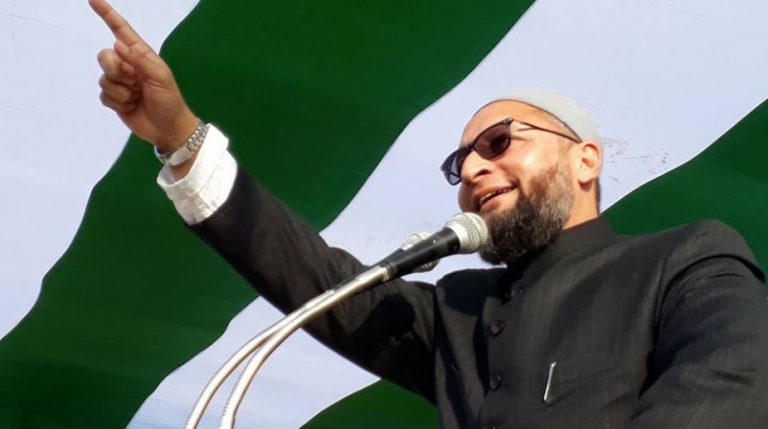Asaduddin Owaisi: In the intricate tapestry of India’s socio-political landscape, the interplay of religious sentiments and political statements often shapes the national conversation. One such instance is the recent remarks by Asaduddin Owaisi, the leader of the All India Majlis-e-Ittehadul Muslimeen (AIMIM), amid the ongoing preparations for the Ram Temple ‘Pran Pratishtha’ ceremony and the controversy surrounding the Sunehri Mosque.
The Context of Owaisi’s Remarks
Asaduddin Owaisi, addressing a gathering on January 1st, emphasized the importance of unity and resilience within the Muslim community. His poignant reflection on the loss of a historical site where Muslims prayed for over 500 years strikes a chord of concern about preserving religious sites. Owaisi’s message was clear: the strength of a community lies in its unity and the ability to maintain its cultural and religious landmarks.
The Call for Preserving Mosques and Community Strength
Owaisi’s appeal to the youth was to maintain their ‘Milli Himayat’ (community support) and keep the mosques vibrant with activity. His cautionary words, “lest our mosques are taken away from us,” resonate with the apprehensions surrounding the protection of religious structures in a rapidly changing political landscape.
The Power of Solidarity
In his speech, Owaisi also focused on the power of unity. He urged the young generation to think about protecting themselves, their families, and their neighborhoods. The emphasis on solidarity as a source of strength highlights the need for communal harmony and mutual respect in a diverse country like India.
Reaction to the Proposal on Sunehri Mosque
Earlier, in response to the New Delhi Municipal Council (NDMC)’s proposal to relocate the Sunehri Mosque, Owaisi raised concerns about the violation of fundamental rights enshrined in the Indian Constitution. He argued that the notification infringed upon Article 25, which guarantees freedom of religion, and Article 29, which protects cultural heritage. Owaisi’s remarks point to a broader discussion about the preservation of historical and religious sites in the face of urban development and political agendas.
Questioning the Government’s Stance
Owaisi’s questioning of the government’s attitude towards Muslims and their places of worship is a crucial part of this discourse. His inquiry about the perceived animosity towards mosques and the sounds emanating from them touches upon the broader issues of religious tolerance and minority rights in India.
A Reflection on Religious Harmony and Political Discourse
Asaduddin Owaisi’s statements shed light on the ongoing challenges faced by religious minorities in preserving their heritage and places of worship. His call for unity and strength serves as a reminder of the importance of solidarity in safeguarding cultural and religious landmarks. In a nation as diverse as India, the discourse surrounding religious harmony and political policy is not just about preserving structures but also about fostering an environment of mutual respect and understanding.
Disclaimer : इस न्यूज़ पोर्टल को बेहतर बनाने में सहायता करें और किसी खबर या अंश मे कोई गलती हो या सूचना / तथ्य में कोई कमी हो अथवा कोई कॉपीराइट आपत्ति हो तो वह [email protected] पर सूचित करें। साथ ही साथ पूरी जानकारी तथ्य के साथ दें। जिससे आलेख को सही किया जा सके या हटाया जा सके ।




